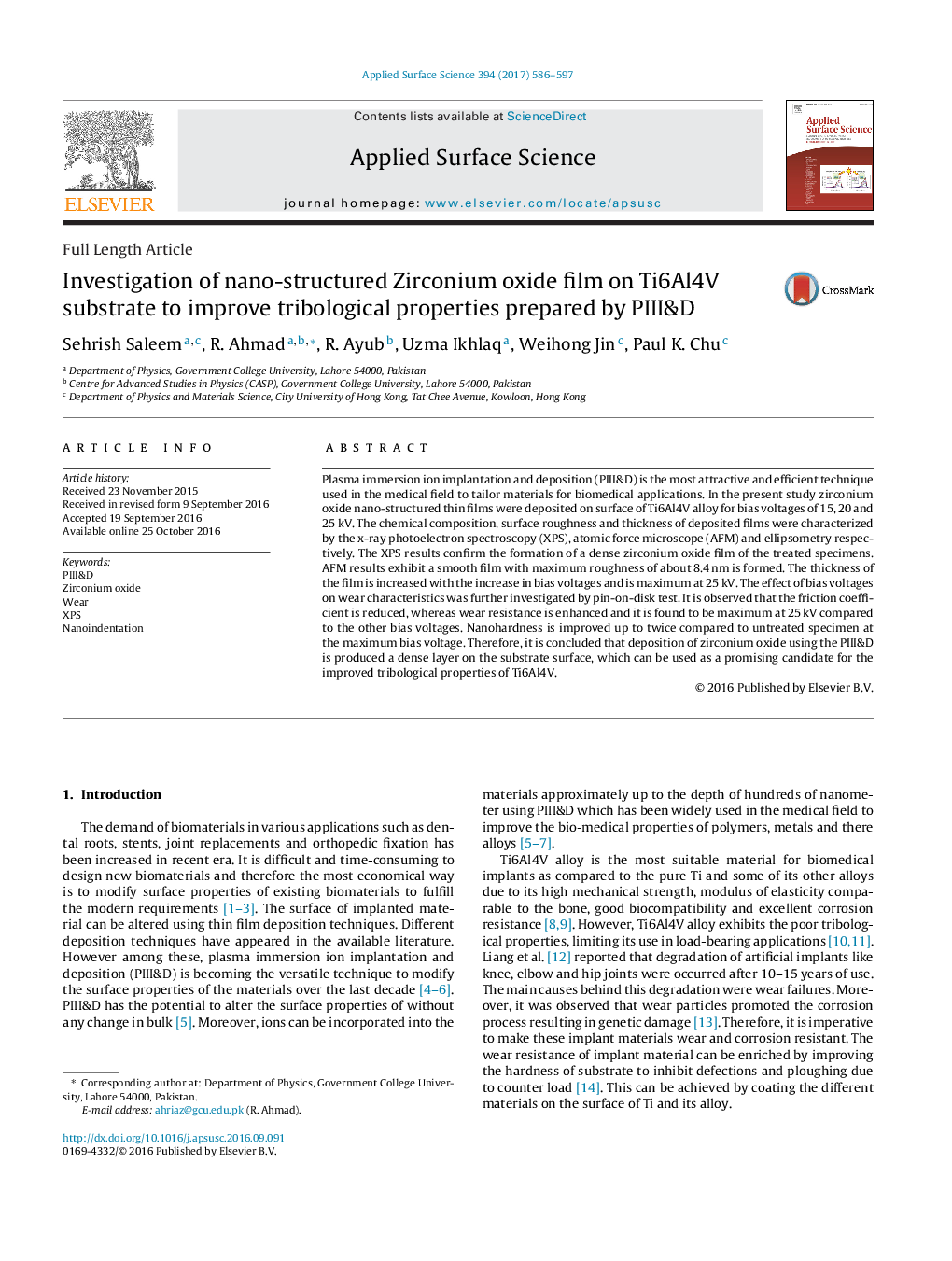| Article ID | Journal | Published Year | Pages | File Type |
|---|---|---|---|---|
| 5352944 | Applied Surface Science | 2017 | 12 Pages |
Abstract
Plasma immersion ion implantation and deposition (PIII&D) is the most attractive and efficient technique used in the medical field to tailor materials for biomedical applications. In the present study zirconium oxide nano-structured thin films were deposited on surface of Ti6Al4V alloy for bias voltages of 15, 20 and 25Â kV. The chemical composition, surface roughness and thickness of deposited films were characterized by the x-ray photoelectron spectroscopy (XPS), atomic force microscope (AFM) and ellipsometry respectively. The XPS results confirm the formation of a dense zirconium oxide film of the treated specimens. AFM results exhibit a smooth film with maximum roughness of about 8.4Â nm is formed. The thickness of the film is increased with the increase in bias voltages and is maximum at 25Â kV. The effect of bias voltages on wear characteristics was further investigated by pin-on-disk test. It is observed that the friction coefficient is reduced, whereas wear resistance is enhanced and it is found to be maximum at 25Â kV compared to the other bias voltages. Nanohardness is improved up to twice compared to untreated specimen at the maximum bias voltage. Therefore, it is concluded that deposition of zirconium oxide using the PIII&D is produced a dense layer on the substrate surface, which can be used as a promising candidate for the improved tribological properties of Ti6Al4V.
Related Topics
Physical Sciences and Engineering
Chemistry
Physical and Theoretical Chemistry
Authors
Sehrish Saleem, R. Ahmad, R. Ayub, Uzma Ikhlaq, Weihong Jin, Paul K. Chu,
